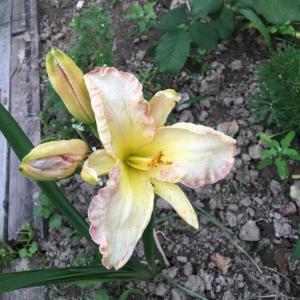动态 (312)
气泡布鲁鲁
2024年09月03日

1. Establish Realistic Goals
Set achievable and realistic weight loss goals. Aim for a steady and gradual weight loss of 1-2 pounds per week. Focusing on sustainable changes rather than quick fixes will contribute to long-term success.2. Adopt a Balanced and Nutritious Diet
Focus on consuming a balanced diet that is rich in whole foods. Include plenty of fruits, vegetables, lean proteins, whole grains, and healthy fats. Limit your intake of processed foods, sugary snacks, and beverages. Be mindful of portion sizes and listen to your body's hunger and fullness cues.3. Stay Hydrated
Drink an adequate amount of water throughout the day. Staying hydrated not only supports overall health but also helps control appetite and prevent overeating. Opt for water as your primary beverage and limit the consumption of sugary drinks.4. Practice Mindful Eating
Be mindful of your eating habits and pay attention to your body's signals. Slow down while eating, savor each bite, and listen to your body's cues of hunger and fullness. Avoid distractions like TV or screens while eating to stay present and make conscious food choices.5. Engage in Regular Physical Activity
Incorporate regular physical activity into your routine. Find activities that you enjoy, such as walking, jogging, swimming, cycling, or dancing. Aim for at least 150 minutes of moderate-intensity aerobic exercise per week, along with strength training exercises to build muscle and boost metabolism.6. Prioritize Quality Sleep
Get enough restful sleep each night. Lack of sleep can disrupt hormonal balance, leading to increased appetite and cravings. Aim for 7-9 hours of quality sleep to support weight loss efforts and overall well-being.7. Manage Stress Levels
Find healthy ways to manage stress, as it can contribute to emotional eating and hinder weight loss progress. Engage in relaxation techniques such as meditation, deep breathing exercises, or yoga. Find activities that bring you joy and help you unwind.8. Seek Support and Accountability
Consider joining a support group, seeking the guidance of a registered dietitian, or partnering up with a workout buddy. Having support and accountability can greatly enhance your motivation and adherence to healthy habits.9. Be Patient and Kind to Yourself
Remember that sustainable weight loss takes time and effort. Be patient with yourself and celebrate small victories along the way. Focus on progress rather than perfection and practice self-compassion throughout your journey.Conclusion
Losing weight naturally is a gradual process that involves adopting healthy habits, nourishing your body with wholesome foods, staying physically active, managing stress, and taking care of your overall well-being. By following these tips and committing to a sustainable lifestyle, you can achieve your weight loss goals while promoting long-term health and vitality.
文章
气泡布鲁鲁
2024年09月03日

1. Define Your Blog's Purpose and Target Audience
Before diving into the world of blogging, it's essential to determine the purpose of your blog and identify your target audience. Decide what topics, themes, or niche you want to focus on. Consider your passions, expertise, and the audience you want to engage with. Having a clear vision of your blog's purpose and target audience will guide your content creation and help you build a loyal readership.2. Choose the Right Blogging Platform
Selecting the right blogging platform is crucial for your blog's success. Consider platforms like WordPress, Blogger, or Squarespace, which offer user-friendly interfaces, customization options, and a range of features. Evaluate their functionalities, ease of use, and scalability to ensure they align with your blogging goals and technical expertise.3. Decide on a Memorable Domain Name
Choosing a memorable and relevant domain name is vital for your blog's branding and online presence. Opt for a domain name that reflects your blog's topic or niche while being easy to remember and spell. Ensure it's unique, available, and aligns with your blog's identity.4. Create High-Quality, Engaging Content
Content is the heart of any successful blog. Develop a content strategy that focuses on providing value to your target audience. Plan and create high-quality, engaging content that is informative, entertaining, or solves a problem. Consistency is key, so establish a publishing schedule and stick to it to keep your readers engaged and coming back for more.5. Implement Effective SEO Practices
Search Engine Optimization (SEO) is crucial for driving organic traffic to your blog. Research and incorporate relevant keywords throughout your content, optimize your blog's metadata, and focus on creating quality backlinks. By understanding and implementing effective SEO practices, you can improve your blog's visibility in search engine results and attract more readers.6. Engage with Your Audience
Building a successful blog goes beyond publishing content. Engage with your audience by responding to comments, encouraging discussion, and fostering a sense of community. Take the time to understand your readers' needs and preferences, and tailor your content to address them. Actively participate in social media platforms related to your blog's niche to expand your reach and connect with a broader audience.7. Monetize Your Blog
If your goal is to generate income from your blog, explore various monetization options. These can include display advertising, sponsored content, affiliate marketing, selling digital products or services, or offering premium memberships. Research and implement monetization strategies that align with your blog's niche and audience while providing value to your readers.Conclusion
Starting a successful blog requires careful planning, consistent effort, and a deep understanding of your target audience. By defining your blog's purpose, selecting the right platform, creating high-quality content, implementing effective SEO practices, engaging with your audience, and exploring monetization options, you can set yourself on the path to blogging success. Remember, building a successful blog takes time, so stay dedicated, adapt to changes, and enjoy the journey.
文章
气泡布鲁鲁
2024年09月03日

Introduction
Whether you're a student, a professional, or simply someone who enjoys writing, improving your writing skills can help you communicate more effectively and achieve your goals. Writing is a skill that can be developed and honed over time, and there are many strategies you can use to improve your writing abilities. In this article, we'll explore some of the most effective techniques for improving your writing skills.Read Widely
Reading is one of the most effective ways to improve your writing skills. When you read widely, you expose yourself to different writing styles, techniques, and genres, which can help you develop your own writing voice and expand your vocabulary. Make a habit of reading every day, whether it's novels, non-fiction, newspapers, or online articles. Try to read a variety of different types of writing, and pay attention to how the writers structure their sentences and use language to convey meaning.Write Every Day
One of the best ways to improve your writing skills is to write every day. Set aside time each day to write, even if it's just for a few minutes. You can write in a journal, create a blog, or work on a short story or essay. Writing every day helps you develop your writing muscle and improve your ability to express yourself through words. It also allows you to experiment with different writing styles and techniques, and to develop your own unique writing voice.Learn Grammar and Punctuation
Good grammar and punctuation are essential for clear and effective writing. Learning the rules of grammar and punctuation can help you avoid common mistakes and improve your writing skills. There are many resources available for learning grammar and punctuation, including online courses, textbooks, and grammar guides. Take the time to study and practice the rules of grammar and punctuation, and make sure to proofread your writing carefully before submitting it.Practice Revision
Revision is an important part of the writing process. It allows you to refine and improve your writing, and to catch errors or areas that need improvement. Make a habit of revising your writing, whether it's a school paper, a work email, or a creative piece. Take the time to read through your writing carefully, and look for ways to improve sentence structure, clarity, and coherence.Get Feedback
Getting feedback on your writing can help you identify areas that need improvement and provide you with constructive criticism. You can ask a friend, family member, or colleague to read your writing and provide feedback, or you can join a writing group or workshop. When seeking feedback, be open to criticism and willing to make changes to improve your writing. Take the feedback as an opportunity to learn and grow as a writer.Conclusion
Improving your writing skills takes time and effort, but with practice and dedication, you can develop your writing abilities and become a more effective communicator. Reading widely, writing every day, learning grammar and punctuation, practicing revision, and seeking feedback are all effective strategies for improving your writing skills. Remember, writing is a skill that can be developed and honed over time. Don't be discouraged if your writing doesn't improve overnight. With patience and persistence, you can become a skilled and confident writer.
文章
气泡布鲁鲁
2024年09月03日

Setting a Realistic Budget
Start by determining how much you can afford to spend on your trip. Consider all aspects of travel including transportation, accommodation, food, activities, and a little extra for unforeseen expenses. Sticking to a pre-set budget helps avoid financial stress during and after your travels.Off-Season Travel: Timing is Everything
Traveling during the off-season can lead to significant savings on flights and accommodations. Research your destination to find out when it's less crowded and more affordable. This not only saves money but can also lead to a more authentic experience, away from tourist crowds.Finding Affordable Accommodation
Explore accommodation options beyond traditional hotels. Hostels, guest houses, and vacation rentals can offer more affordable rates. Websites like Airbnb, Hostelworld, or Couchsurfing can be great resources. Consider booking accommodations with a kitchen to save money on meals.Smart Flight Booking Strategies
Airfare can be a major travel expense. Use flight comparison sites to find the best deals and be flexible with your travel dates and airports. Booking in advance and setting fare alerts for price drops can also lead to cheaper flights.Economical Transportation Choices
Research the most cost-effective ways to get around your destination. Public transportation, ride-sharing, and walking are generally cheaper than taxis or renting a car. In some cities, purchasing a travel pass can offer unlimited use of public transport and discounts on attractions.Embracing Local Cuisine
Eating like a local is not only budget-friendly but also a cultural experience. Street food, local markets, and small eateries often offer delicious food at a fraction of the cost of tourist-centered restaurants. Plus, you get to taste authentic flavors!Free and Inexpensive Attractions
Many destinations offer free or low-cost attractions. Research free walking tours, visit public parks, explore local markets, or find museums with free admission days. Nature itself is often a free yet invaluable attraction – think beaches, mountains, and hiking trails.Planning and Booking in Advance
Last-minute bookings can be expensive. Plan your itinerary and book tours, tickets, and activities in advance to avoid price surges and secure your spot, especially for popular attractions.Using Travel Apps and Websites
Leverage technology to your advantage. Use travel apps and websites for finding deals, budget tracking, and getting local tips. Apps like Skyscanner, TripAdvisor, and Rome2rio can be particularly useful for budget travelers.Travel Insurance: A Wise Investment
Never skimp on travel insurance. It protects you from unexpected expenses due to emergencies, cancellations, or medical issues. While it's an additional cost upfront, it can save you a significant amount of money in the long run.Conclusion: Enjoying the Journey Without Breaking the Bank
Traveling on a budget doesn’t mean compromising on experiences. With thoughtful planning, smart choices, and a willingness to embrace the local way of life, you can enjoy a fulfilling trip without overspending. Remember, the best travel experiences often come from the simple joys of discovering new places and cultures.
文章
气泡布鲁鲁
2024年09月03日

Understanding Your Purpose and Audience
Before you start your YouTube channel, clarify your purpose. Are you aiming to entertain, educate, or share a hobby? Understanding your audience—whom you're creating content for and what they're interested in—is equally important. This foundational clarity will guide your content strategy.Setting Up Your YouTube Channel
Creating a YouTube channel is straightforward. Sign in with a Google account, navigate to YouTube settings, and click on ‘Create a channel.’ Choose a catchy, relevant channel name that reflects your content and is easy for users to remember.Content Planning and Consistency
Content is king. Plan your videos in advance and maintain a consistent posting schedule. Consistency helps build an audience. Consider creating a content calendar to organize video topics, filming, and upload dates.Investing in Basic Equipment
Good quality videos attract more viewers. Invest in a decent camera, microphone, and lighting. You don't need top-of-the-line equipment at the start; even a smartphone with a good camera can suffice. As you grow, you can upgrade your gear.Learning Basic Video Editing
Editing is crucial in making your videos engaging. Learn basic video editing skills using software like Adobe Premiere Pro, Final Cut Pro, or free tools like iMovie or Shotcut. Good editing can enhance your storytelling and keep viewers interested.Optimizing Video Titles, Descriptions, and Thumbnails
Your video titles, descriptions, and thumbnails can greatly impact your video’s visibility and click-through rate. Use compelling titles and descriptions with relevant keywords for SEO. Create eye-catching thumbnails that give a preview of the video content.Engaging with Your Audience
Building a community is vital on YouTube. Engage with your audience by responding to comments, asking for feedback, and addressing viewers in your videos. This interaction helps foster a loyal viewership.Understanding YouTube Analytics
YouTube provides analytics to track your channel's performance. Use these insights to understand your audience better and adjust your content strategy based on what videos are performing well.Promoting Your Channel
Don’t hesitate to promote your channel on social media, blogs, and forums. Collaborate with other YouTubers and participate in community events or challenges to expand your reach.Monetizing Your Channel
Once your channel meets YouTube's eligibility criteria, you can monetize your videos through ads, sponsorships, or merchandise. Remember, building a successful channel takes time, so focus on creating quality content and engaging with your audience to grow your channel organically.Staying Informed and Adaptable
YouTube is constantly evolving, so it’s important to stay informed about the latest trends and algorithm changes. Be adaptable and willing to tweak your strategy to stay relevant and grow your channel.Conclusion: Embarking on a Creative Expedition
Starting a YouTube channel can be an exciting and rewarding endeavor. It allows you to express creativity, share your knowledge, and connect with a global audience. With passion, consistency, and a willingness to learn and adapt, you can create a successful platform that resonates with viewers and grows over time.
文章
相关用户


















